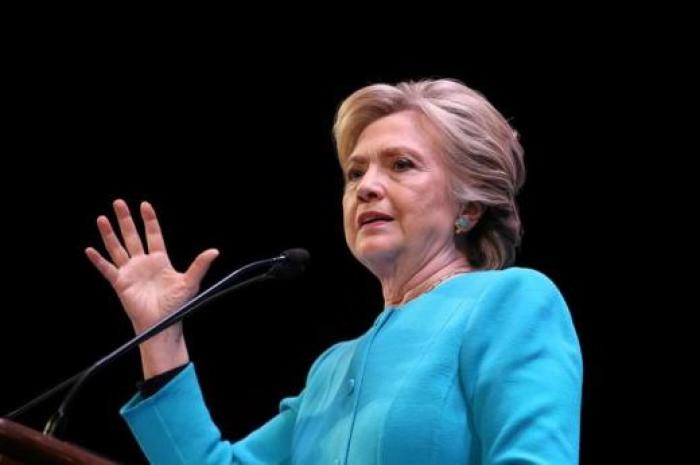Young people leaving Church because 'Christianity is judgmental and alienating,' Hillary Clinton says

Many young people are leaving the Church today because Christianity has become too judgmental and alienating for them, said lifelong Methodist and former Secretary of State Hillary Clinton.
Clinton made the comment while interviewing social justice advocate and Pastor William J. Barber II of Greenleaf Christian Church in Goldsboro, North Carolina, last week on her “You and Me Both with Hillary Clinton” podcast.
During the podcast, she argued that "black lives matter" is a “theological statement.” The Church in America, she suggested, needs to “take a hard look at itself and try to figure out how it can be a real partner in this moment of moral awakening.”
“Jesus and justice are the same thing,” Clinton argued, but there is a “concerted effort by one political party to basically try to own Christianity and it overlooks the role of the African-American church.”
“You know, to say that Jesus and justice are the same thing seems to me to be so obvious. I mean, how can you be a Bible reading person, a church attending person, and not understand how profoundly true that simple phrase really is,” Clinton said to Barber before asking him how as a veteran pastor and activist he is “trying to open up people's minds and hearts to understand what Christianity should mean and what should be expected of us who claim to be followers of Jesus.”
Barber explained that people need to first admit “from at least Western culture and American culture” that "the genocide of First Nations people and the enslavement of African Americans," along with the exclusion and oppression of women, “affected and infected theology in a bad way.”
“One of my professors said, ‘To be a Christian’ — to be born again, sprinkle whatever you call it — ‘and to claim the Holy Spirit, is to have a quarrel with the world's systems of injustice.’ And if whatever you claim you have doesn't produce a quarrel with injustice, then your claim of it being the Spirit with the big S is suspect,” Barber said.
It was at this point that Clinton raised the wedding of Christianity to one political party.
“When you think about the very deliberate, concerted effort by one political party to basically try to own Christianity and it overlooks the role of the African-American church, it overlooks, as you say, a lot of theology, a lot of history. It also overlooks this moment in time. Black Lives Matter I view as very profoundly as a theological statement,” she said.
When Clinton asked Barber if he thought America was “finally going to have the moral reckoning that has been distorted and perverted and postponed for so long,” Barber pointed out that while America had the theology of “slaveholder religion” there was also the “religion of the abolitionist” that countered that historically with diverse people coming together to fight racism.
The ongoing protests about racial inequality and injustice, Barber argued, are the “birth pains” of what he sees is a third reconstruction.
“We've had two reconstructions, one between 1868 and 1896. And then we had the second reconstruction, 1954 to 1968. And I think America needs a third reconstruction. I think this is the birth pains of it,” Barber said.
“I think this moment can be a moment where we come to terms not just with systemic racism as it affects black people, but systemic racism in all of its manifestations against brown people, against First Nations people, but also systemic poverty and ecological devastation and the war, economy and the false moral narrative of religious nationalism.
“This is a moment, if we don't miss the moment, if we match our policy decisions to the mourning we see in the street, and if we don't treat this as a spectacle event, rather than recognizing this is a call for reconstruction, this is a moment that we can fundamentally shift, but it's going require a lot of shift. It's going to require politicians to shift. It's going to require people that may run for office to be moderate, to recognize we're not in a moderate moment, we're in a reconstruction moment. We're in an FDR moment. We are not in normal times. And God help us if we blow this moment. That's the way I feel about it."
Clinton then questioned Barber on how the Church should respond to the moment particularly since so many people have been alienated by religion.
“How do you see now what the Church should be doing? Because a lot of people are leaving the Church. A lot of young people are leaving the Church, in part because the way they understand what Christianity has become ... so judgmental, so alienating that they think to themselves, well, I don't need that,” she said.
Barber, who recently released a new book, We Are Called to Be a Movement, suggested that churches need to promote faith that is transformative.
“Young people are very open to faith that is about transformation, about love, about justice, about equality, about the essence, the essence of what it means to be people of faith. And I think we have to be engaged. There's no way in the days in which we live, the church can stay quarantined inside of the four walls of a building because that's never what it was intended to do,” he said.




























